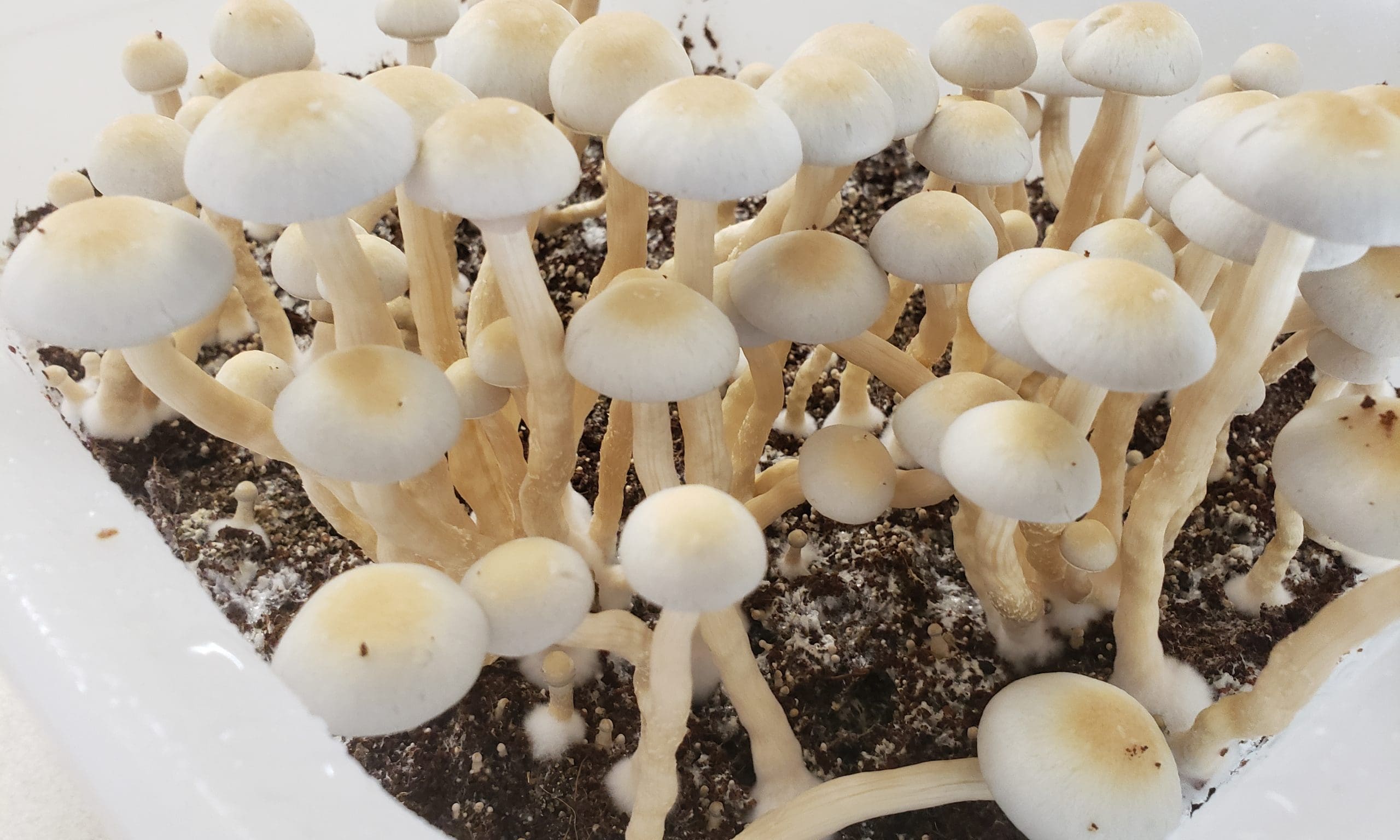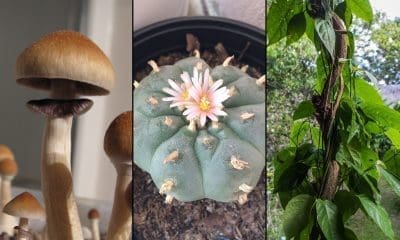Politics
Second California Senate Committee Approves Bill To Legalize Psychedelic Service Centers

A second California Senate committee has approved a bill to legalize psychedelic service centers where adults 21 and older could access psilocybin, MDMA, mescaline and DMT in a supervised environment with trained facilitators.
About a week after an initial panel cleared the legislation, the Senate Public Safety Committee passed the measure from Sen. Scott Wiener (D) in a 3-2 vote on Tuesday. It next heads to the Appropriations Committee.
The “Regulated Therapeutic Access to Psychedelics Act” has been drafted in a way that’s meant to be responsive to concerns voiced by Gov. Gavin Newsom (D) last year when he vetoed a broader proposal that included provisions to legalize low-level possession of substances such as psilocybin.
Instead, the new bill that’s now being unveiled would provide regulated access to psychedelics in a facilitated setting, without removing criminal penalties for possession outside of that context. It does not lay out any specific qualifying medical conditions that a person must have in order to access the services.
The measure had already undergone a series of mostly technical amendments before reaching committee. Wiener also agreed to revise the legislation at last week’s hearing to make it so psychedelics facilitators would need to have an existing professional health license, such as those for psychiatrists, social workers, drug and alcohol counselors and nurse practitioners.
Our legislation legalizing supervised use of psychedelics, with licensed facilitators, just passed its second committee, the Senate Public Safety Committee.
SB 1012 will help people access psychedelics while increasing safety & education.
Thank you, colleagues!
— Senator Scott Wiener (@Scott_Wiener) April 23, 2024
SB 1012 is an “overdue approach,” Wiener told committee members on Tuesday. “People are using psychedelics today. There is incredible potential in terms of treating mental health and substance use disorders. And we should bring it into the sunlight so people can use safely in a supervised, structured setting.”
Advocates were disappointed to see the governor, who championed marijuana legalization while serving as the state’s lieutenant governor, reject the earlier psychedelics measure from Wiener last year. But the senator has said he was encouraged that Newsom “constructively” recommended a dialed-back pathway to reform.
SB 1012 is a “direct response to the governor’s request,” Wiener’s office said last week.
Retired Lt. Diane Goldstein, executive director of the Law Enforcement Action Partnership (LEAP), testified in favor of the legislation during Tuesday’s hearing, stating that it would “craft an actionable plan for the regulated use of psychedelics as an issue of public health.”
“This bill is a first step towards saving lives by helping to destigmatize cutting edge treatments for the underlying mental health challenges that drive addiction and other behavioral health issues while providing needed guardrails and safety to access treatment,” she said.
Several law enforcement associations, including the California State Sheriffs’ Association, expressed opposition to the reform.
Sen. Kelly Seyarto (R), vice chair of the Public Safety Committee, also criticized the proposal. He voiced “grave concerns about expanding the ability for people to alter their minds and then go out into the public” and said he would not be supporting it unless it is “narrowed way down.”
Here’s what the bill, SB 1012, would accomplish:
- Adults 21 and older could access psilocybin, psilocyn, DMT, mescaline (excluding peyote) and MDMA at licensed facilities with trained facilitators.
- Facilitators would need to undergo training and obtain a license under a professional board that’d be established under the California Department of Consumer Affairs (DCA).
- The board would be overseen by an expert oversight committee under the Business, Consumer Services, and Housing Agency (BCSHA)—with members appointed by the governor.
- The bill would establish a “Division of Regulated Psychedelic-Assisted Therapy” under the BCSHA that would be tasked with regulating the psychedelics program.
- Regulators would need to develop rules to allow for the licensing of producers and laboratory testing facilities for psychedelics.
- The bill would not restrict psychedelic services to people with a specific set of qualifying medical conditions.
- Individuals interested in participating in the psychedelic services would need to submit to a health and safety screening.
- Facilitators would be required to conduct follow-up appointments with participants, report any adverse effects and provide integration services.
- The legislation would create a public-private fund that’d be tasked with promoting public education around the safe use of psychedelic substances.
- Psychedelics would remain prohibited outside of the licensed service centers, and there would be no commercial sales component of the law.
- Regulators would also need to ensure that psychedelic services are affordable and accessible to low-income populations.
- A “Public Education and Harm Reduction Fund” would also be created to support efforts to educate the public about the potential benefits and risks of psychedelics.
Meanwhile, Assemblymember Marie Waldron (R), the lead on the Assembly side, is sponsoring a separate psychedelics bill focused on promoting research and creating a framework for the possibility of regulated therapeutic access that has already moved through the Assembly this year with unanimous support.
—
Marijuana Moment is tracking more than 1,400 cannabis, psychedelics and drug policy bills in state legislatures and Congress this year. Patreon supporters pledging at least $25/month get access to our interactive maps, charts and hearing calendar so they don’t miss any developments.
![]()
Learn more about our marijuana bill tracker and become a supporter on Patreon to get access.
—
Separately, a California campaign to put psilocybin legalization on the state’s November ballot recently announced that it did not secure enough signature to qualify in time for a deadline.
Another campaign filed and then abruptly withdrew an initiative to create a $5 billion state agency tasked with funding and promoting psychedelics research last year.
A third campaign also entered the mix late last year, proposing to legalize the possession and cultivation of substances like psilocybin, LSD, MDMA, DMT, ibogaine and mescaline. People could buy them for therapeutic use with a doctor’s recommendation. Advocates for that measure still have time to gather and turn in signatures.
The California Legislative Analyst’s Office (LAO) has since released its review of that proposal, outlining not only the plan’s policy implications but also its potential fiscal impacts on the state—which the report calls “various” and “uncertain.”
Some California municipalities, meanwhile, are pushing forward with reform on the local level. The city of Eureka, for example, adopted a resolution in October to decriminalize psychedelic plants and fungi and make enforcement of laws against personal use, cultivation and possession a low priority for police. It’s at least the fifth local jurisdiction in the state to embrace the policy change. Others include San Francisco, Oakland, Santa Cruz and Arcata.
DEA Shouldn’t Be In Charge Of Marijuana Rescheduling Decision, Jesse Ventura Says
















